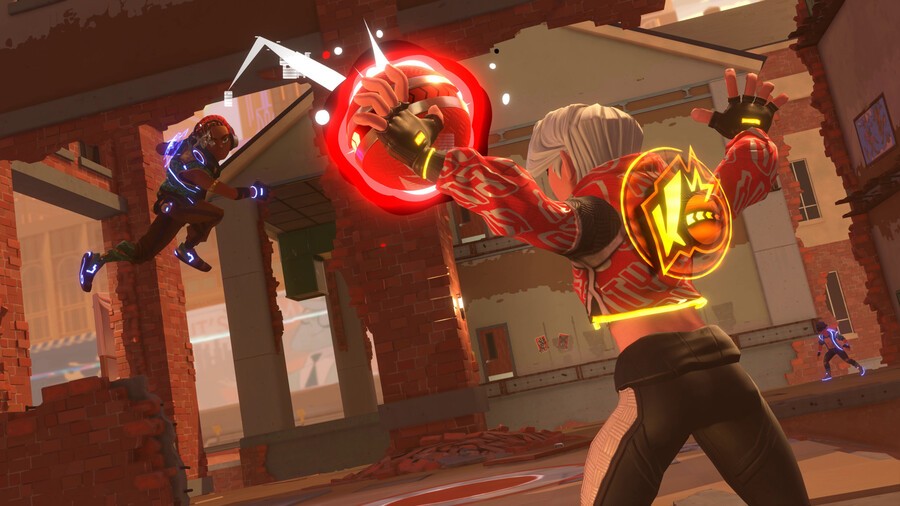
Velan Studios is not a household name, but despite this, it's been able to make a bit of a splash. Its first release was the Switch exclusive Mario Kart Live: Home Circuit, but it's also been building up to the launch of something very different: Knockout City. Published by EA Originals, the multiplayer dodgeball game is on the verge of release, and it's already garnered plenty of excitement from an enthusiastic community.
The idea of a competitive game about throwing, catching, and dodging is a simple one, but not something that's really been done before. As it turns out, the concept came to the studio early on, and it's been slowly building on the idea over four years. "Knockout City was one of the early prototypes that we did, to be able to say, 'What kind of different experiences can we create for online multiplayer games?'" says Guha Bala, one of the founding brothers of Velan Studios. He tells us they wanted to avoid making anything too similar to the multiplayer shooters out there, and they landed on the idea of throwing and catching a ball.
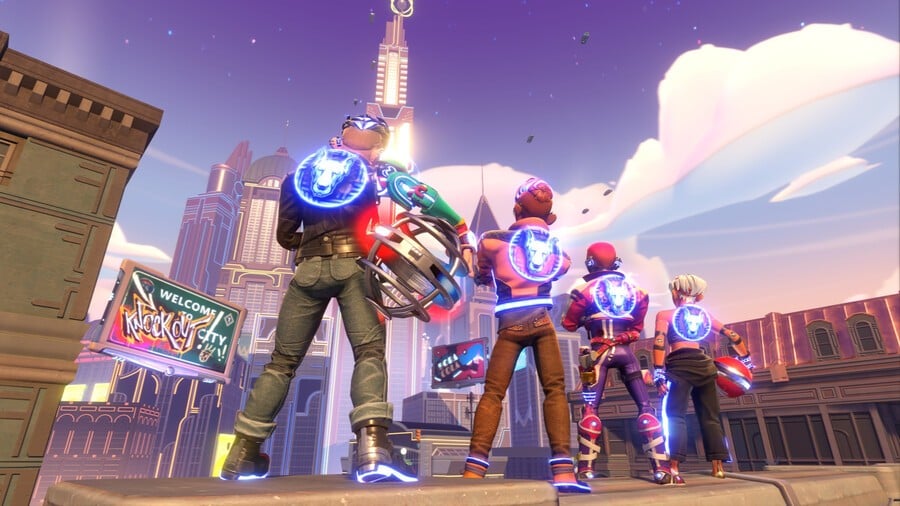
After experimenting and discovering how a game like that would work, the team learned it's quite different from designing you average shooter. Guha says being able to throw and catch a projectile fundamentally changes the approach to design: "Are you trying to spread people apart? What does map design look like? What does team interaction look like? How do you really simplify everything so that it does the things that are really distinctive and lets the play mechanics shine? That took us a while to figure out," he admits.
In fact, Velan Studios took on the enormous task of building a proprietary engine for its unique dodge-brawl title. Guha says building an engine and the game simultaneously is like "building the tracks [and] the train while you're driving at the same time", which sounds like a very complex circumstance to navigate. However, he asserts that a custom engine was necessary: "To make the game work, and work in a competitively fair setting across geography, internet latencies, across platforms, we had to take this route." Having your own tech allows you to create something unique, and may enable you to make things that existing engines can't.
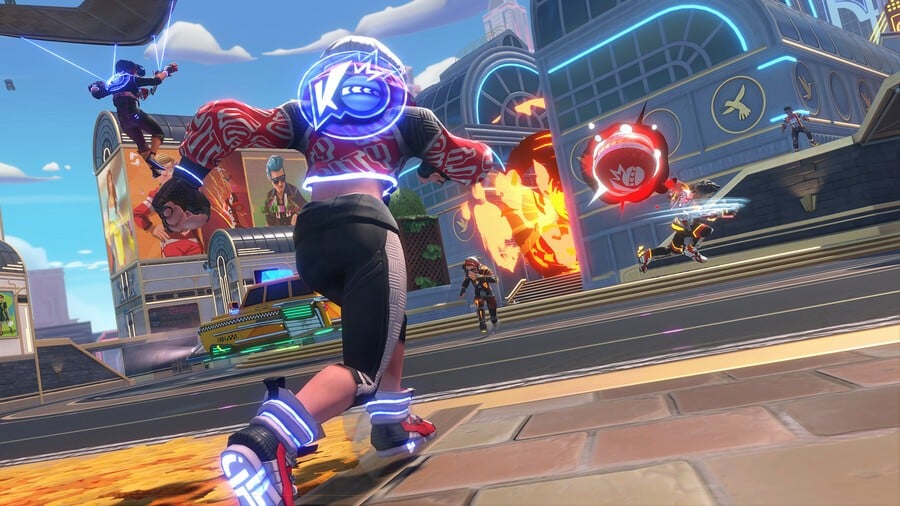
Guha's brother and co founder Karthik Bala talks about their efforts in using rollback netcode. Rollback is what some fighting games utilise to ensure player inputs are registered and carried out accurately, but it's being applied to Knockout City in clever ways: "What we had to do that was really new was, how could [rollback] be a general purpose solution, not specific to a mechanic or set of constraints?" Karthik explains. "It had to work with arbitrary level design, and a number of players that become physics objects and so on."
The result of the team's hard work is a highly scalable engine that allows the game to run extremely well regardless of platform. That means the PlayStation 4 version is great, but scales up nicely on PS5 via backwards compatibility, supporting 4K and 60 frames-per-second on the newer hardware.
So, what about the game itself? It's essentially digitised dodgeball, but there are various ways it goes beyond that idea, with all kinds of unique ball types, various types of throw you can perform, and the ability to become a ball for your teammates to use. The Bala brothers are keen to stress that Knockout City is a multiplayer game that's simple to play, but provides lots of depth for those that want it. "We wanted to create a competitive online game as equally appealing to new players, new gamers that don't usually play online games, but also have serious credibility and skill depth for core competitive players," says Karthik. Finding the sweet spot that pleases both types of player is "really challenging to do", but Velan Studios seems confident in the results. "Where we landed was a set of core rules and gameplay mechanics that's very intuitive and pick-up-and-play, but the emergent play pattern as a team changes the way you play over time," Karthik tells us. He talks about the mind games you engage in with opponents, and the emergent strategies you build with your team as a match goes on.
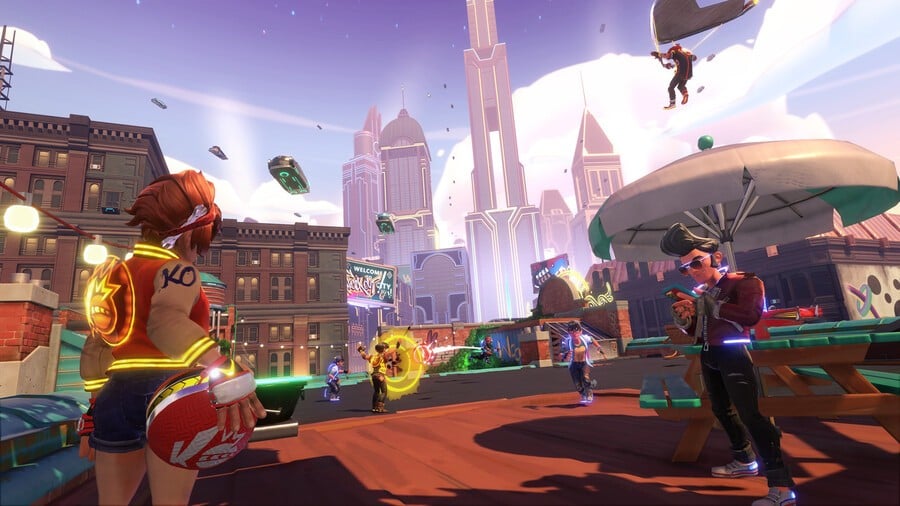
Indeed, the skill ceiling does appear to be quite high; even the developer is sometimes surprised by how people are playing. Ultimately, as Guha says, the community will play a huge part in exploring advanced tactics and how the game changes: "The final phase of any development for us is to see how people react to it, how people use it, and then follow that."
When the game launches on 21st May, it'll come with a staple mode in Team KO, but that will be bolstered with various other playlists that come in and out of the game on a weekly basis. Karthik promises a "new playlist every week" following the arrival of season one, meaning there will constantly be new ways to play aside from the standard team matches. One example is Party Team KO, which makes all balls in the map special variants, like the Cage Ball or the Moon Ball, which will result in all kinds of chaos. Then there's the Street Pass, a 900-tier progression system that means you'll always be unlocking new cosmetics and goodies.
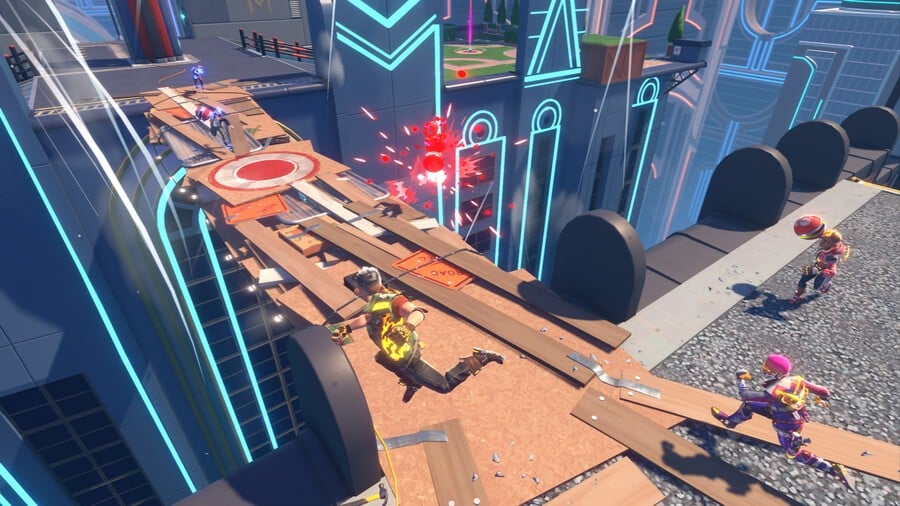
Additionally, a Crew system lets you buddy up with up to 32 players, but these are about more than just a customisable logo. Karthik says that, while you can absolutely trick your Crew out with unique gear, Crew Contracts give you more reasons to play together. "These are weekly challenges that you do together as a Crew, that unlock exclusive rewards," he says, describing it as a "social battle pass". Essentially, being part of a Crew gives you access to stuff you otherwise wouldn't, and you can attain things like exclusive Crew vehicles by completing synchronous or asynchronous goals as a team.
As for where the game will go in the future, the Bala brothers are going to let the game and the community do the driving. There are of course plans to keep things going with new playlists and seasonal updates, but the team wants its player base to influence the direction of the project. For example, the community has been vocal in asking whether there are plans for eSport-style tournaments, but Karthik says it's up to players. "As a developer, we don't get to decide whether a game is an eSport — the community makes that decision," he says. "We want to support and drive that if the community wants it. This is something that needs to organically evolve."
It certainly sounds to us like Velan Studios has its priorities straight for Knockout City. From our time playing the open beta, we can say that it's a really fun experience with lots of potential — all it really needs is a healthy number of engaged players to keep it moving. If the team is flexible enough to keep up with what that community wants, this could become a surprisingly robust multiplayer title.
A big thank you to Guha and Karthik Bala for taking the time to talk to us. Knockout City comes to PS4 on 21st May, and will be available as part of EA Play. There will also be a limited free trial for all players to give the game a shot before you purchase.





Comments 5
I really enjoyed the beta and may buy it one day.
I’d try the game, but it really looks very much free to play.
This has ps+ written all over it
Definitely a day 1 buy for me
was very surprised with how good the game was when I tried the beta on PS5. will probably play it through gamepass for a bit and pick out a platform from there since cross progression is in the game.
Show Comments
Leave A Comment
Hold on there, you need to login to post a comment...